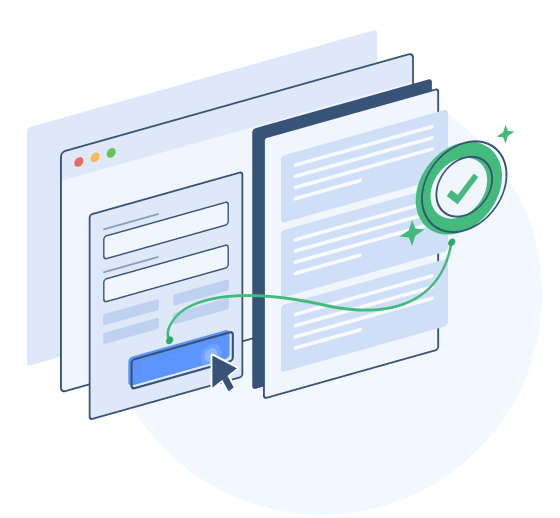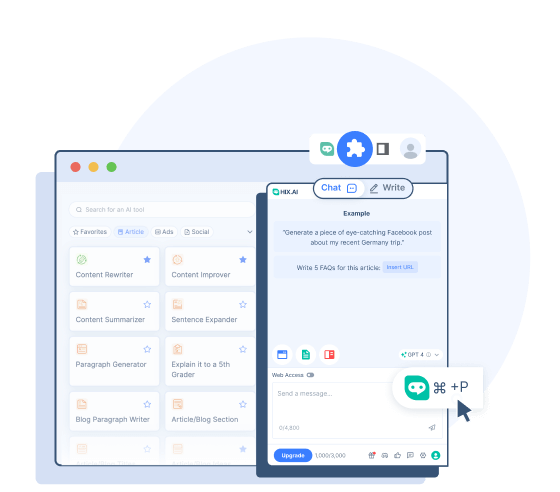Stuck while studying for your college course? Professors play a critical role in our college education, providing lectures, leadership, and support. Let’s face it, you’re paying enough for your college education, the least you can expect is an answer to an email.
Professors aren’t big scary monsters (not all, anyway), but reasonable people who will want to help you with your email requests. They will expect your email requests to be written properly, in a style that shows respect. You’re not messaging a friend but someone in power.
How do you do it? In this guide on how to write an email to a professor, we detail the email format. We'll show you how to structure emails to any professor and provide 5 sample emails to a professor, including:
- Email a professor asking for more information
- Email to a professor about a deadline
- Email to a professor asking for a reference
- Email to a professor about personal issues
- Email to a professor asking for an extension
By the end of this guide on emailing a professor, you can ask for anything you want (we can't guarantee they'll respond, though!).
Streamline Your Academic Communication
Before exploring our hand-crafted samples, harness the power of technology to perfect your message by using our free AI email generator, designed to make drafting professional emails to professors seamless and efficient.
Why write an email to your professor?
Professors are responsible for supporting and guiding you during your academic career. That could include help with a tricky assignment, an extension on a deadline, or providing a reference. Professors also have a pastoral duty and may provide assistance if you are experiencing a personal issue. Basically, they’re there to help you out if you need it.
If you can, it's best to ask for help and support in person – but we know this isn't always possible, especially as many students study remotely. But, if you can't speak in person, it's OK to email your professor – but you'll need to ensure that your messages are polite, professional, and follow the correct email format and structure.
So let's start by showing you 5 sample emails to a professor.
5 sample emails to a professor
These sample emails to a professor provide some valuable guidelines on structure, tone of voice, and approach that you can use. You can cut and paste these samples if you want to, but we recommend you use them as the basis for building your own emails.
Email to professor asking for more information
Didn't catch something in a lecture or need clarification about an assignment? This email to a professor will help you quickly get the information you need.
Dear [Recipient's Name],
I hope this email finds you well. I attended your lecture on [lecture topic] and would like to seek further clarification on [specific area]. I found the content quite challenging, and I believe further discussion will greatly enhance my understanding of the subject matter.
Could we schedule a brief meeting during your office hours this week? I would greatly appreciate the opportunity to discuss my questions and seek additional guidance regarding the assignment. Please let me know a suitable time for you, and I will make myself available accordingly.
Thank you for your attention.
Best regards,
[Your Name]
Email to professor about a deadline
Professors are in charge of setting assignments and managing deadlines. But what happens if you've forgotten a date? This email to a professor can be used to determine the deadline and ensure you don't miss it!
Dear Professor [Recipient's Name],
I hope this email finds you well. I apologize for any inconvenience caused, but I seem to have forgotten the deadline for the assignment you had set. Could you please kindly provide me with the deadline for the assignment? I want to ensure that I don't miss it. Thank you in advance for your assistance.
Best regards,
[Your Name]
HIX Email WriterWrite/Reply to Emails Instantly
Type // to draft emails in no time
Get tailored replies with one click
Quickly summarize a received email
Read also: How to Ask for a Raise via Email
Email to a professor asking for a reference
If you don't have an employment reference, and reference from a professor is a suitable substitute. Before putting your professor's name on an application, use this email to ask for a reference.
Dear [Professor's Name],
I hope this email finds you well. I am reaching out to request your assistance with a reference. I am applying for [Job/Program] and a reference from a professor is required. Your knowledge of my work ethic and academic abilities would make you an ideal reference.
If you are willing to provide a reference, please let me know and I will provide you with any necessary information or documentation. The deadline for submission is [Date].
Thank you for considering my request. I greatly appreciate your support.
Best regards,
[Your Name]
Read also: How to ask for a reference in an email (5 samples & templates)
Email to a professor about personal issues
Sometimes life can get in the way of our education and change our priorities. This email to a professor sets out the issues you're experiencing and their impact on your studies.
Dear Professor [Recipient's Name],
I hope this email finds you well. I wanted to inform you about some personal issues I am currently facing, which have been impacting my studies.
I am going through a difficult time in my personal life, dealing with a family emergency. As a result, my availability and ability to fully focus on my coursework has been significantly affected. I am doing my best to manage the situation, but I anticipate that it may continue to impact my performance in the upcoming weeks.
I understand the importance of my studies and I am committed to overcoming these challenges. I will make every effort to catch up on missed assignments and actively participate in class despite the circumstances.
I kindly request your understanding and support during this time. If there are any accommodations or extensions that you could grant me, I would greatly appreciate it. I am open to discussing potential solutions that would allow me to continue my education while navigating these personal difficulties.
Thank you for your attention and consideration.
Best regards,
[Your Name]
Read also: How to introduce yourself in an email (5 examples)
Email to a professor asking for an extension
Not going to hit your assignment? Ask for an extension! While we can't guarantee you'll be given one, this email to a professor asking for an extension will give you the best chance!
Dear [Professor's Name],
I hope this email finds you well. I am reaching out today regarding the upcoming assignment due on [Date]. I apologize for the inconvenience, but I am experiencing some unexpected difficulties that have impacted my ability to complete the assignment on time.
Considering the circumstances, I would like to request a brief extension to submit the assignment. I understand that this is entirely at your discretion, and I am willing to accept any conditions or penalties for extending the deadline.
Thank you for your understanding, and I appreciate your attention to this matter.
Best regards,
[Your Name]
Expert guide on how to email a professor
Professors are professional people (the clue is in the name) and expect the highest standards of written language. They're not going to be impressed by spelling mistakes or grammar issues. They're also used to reading and responding to formal emails, so you must always stick to the established structure.
When writing emails to a professor, you should keep laser-focused on the outcome. This is an approach that works for writing any email to a professor:
- Introduce yourself
- Explain why you're emailing and what you want
- Express gratitude in advance
- Include a deadline/CTA
As we've explained previously, professors expect to read emails in the correct format. To help explain how to write an email to a professor, we've split this into 3 sections:
- Email to professor subject line
- Body copy
- Sign-off/next steps
Email to professor subject line
Professors will find their inboxes full of hundreds of emails from students, fellow academics, and faculty staff – so yours will need to stand out. How? By creating a great subject line!
It's easier to demonstrate how to write subject lines with some example subject lines to emails for your professor.
- Can I ask for some help with (include details)
- Clarification required (lecture details)
- What is my assignment deadline?
- Please can you confirm my assignment deadline?
- Assignment extension request
- Can I ask you for a reference?
- Would you provide me with a reference?
- Reference request
Email to professor body copy
Your subject line will hopefully be strong enough to grab your professor's attention. As soon as they open the email, you must engage them correctly.
If you're confident, you can use a less formal greeting, such as "Hi Professor (their name)." If you don't know them well or are writing a formal email like asking for an extension, it's better to use "Dear Professor (their name)."
Now, we can work through the structure that we outlined above. In this example, we want more information on a point raised in a lecture.
Introduce yourself
"My name is (your name), and I attend your class (insert details)."
Also learn about: How to introduce yourself in an email?
Explain why you're emailing and what you want
"I'm contacting you to ask for some additional information about a point you raised in your lecture on (insert date, time, etc.). Specifically, I would like to know (whatever you want to know!)."
Express gratitude in advance
"I appreciate that you are very busy, and I would like to thank you in advance for any information and insights you can provide."
Email to professor sign-off/next steps
Your message is powerful and (most importantly) short! We're almost at the end, but we need to add more to your message.
Include a deadline/CTA
"I am working on an assignment with a deadline of (insert date). Could you respond to me before this date? You can contact me to discuss it at (insert details)."
Finally, you'll need to provide a closing line ("Thanks," "Many thanks," "Kind regards," etc.), as well as your name and any other information required.
Now you're ready to send it to your professor.
How to write pro messages to your professor
When emailing your professor, you have to understand where the power lies They’re busy, under-pressure, and probably dealing with hundreds (maybe even thousands) of other students. To cut through the noise, your request will have to be clear and stick to these principles:
- Always use a proper greeting: Begin your email with a formal greeting, such as "Dear Dr. [Last Name]" or "Hello Professor [Last Name]." Check and double-check you're using your professor's title correctly.
- Cut out waste words: Keep your message as brief as possible by cutting out wasted words. Use a strong subject line and state the purpose of your email in the first few sentences.
- Use proper grammar and spelling: Academics expect high standards, so always check for spelling and grammar issues before sending.
- Be respectful and polite to your prof: Saying "please" and "thank you" goes a long way. Ask for help courteously and express gratitude for any help.
- Identify yourself: Professors will deal with many students and may not know who you are, so always identify yourself and the class(es) you're studying.
- Avoid casual language or slang: Professors won't expect informal language, slang, and other lazy phrases.
- Outline your requirements clearly: Whatever the purpose of your email, state your needs clearly. Professors are time-poor and will simply want to know what you want as soon as possible, so don't keep them waiting!
- Thank them for their time: Professors are busy people, so thank them for their time. Sometimes, a few choice words can work wonders in getting you the desired result.
- Sign off properly: End your emails positively, and do so professionally with a suitable sign-off. Professors are in a position of authority; they're not your friend.
- Use HIX.AI: If you're not hitting the right tone, or finding the formal email format tricky, use HIX.AI email generator. This AI-powered platform can craft effective emails to professors in seconds.
Conclusion
Don't know how to email a professor? Using the tips, tricks, and format outlined in this blog, you'll create powerful emails to your professor in record time. If you're worried, always follow your instincts and focus on keeping things short, professional, and polite – and always express gratitude.



